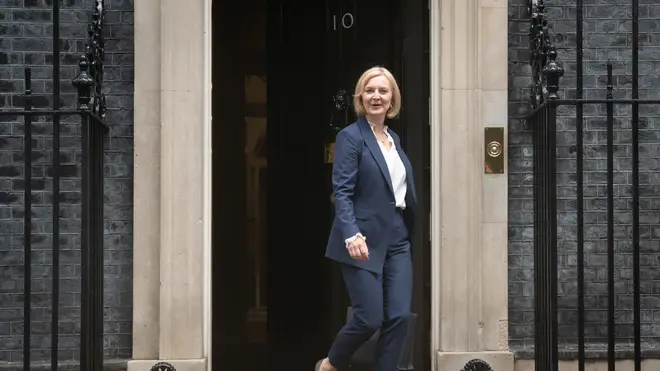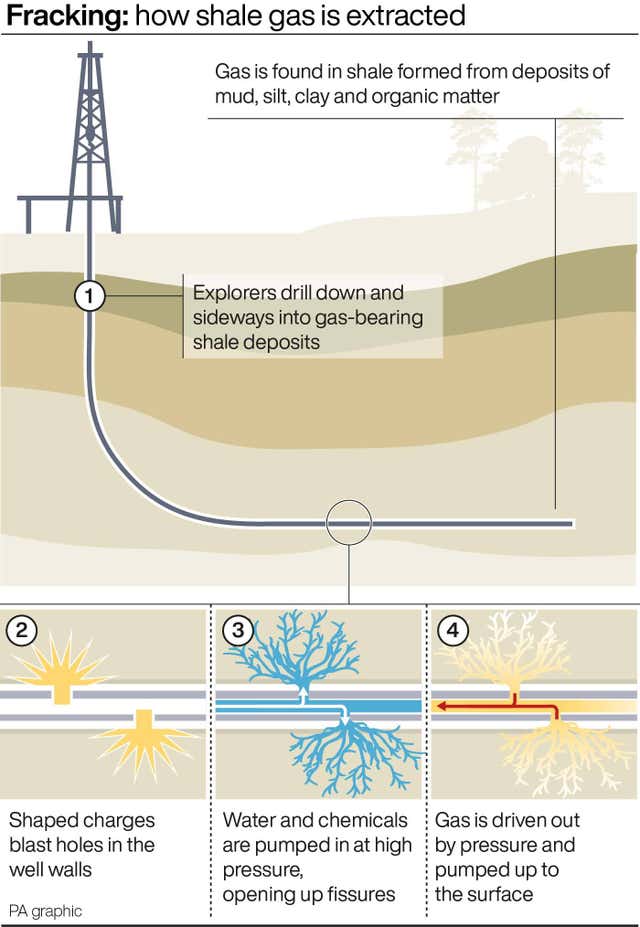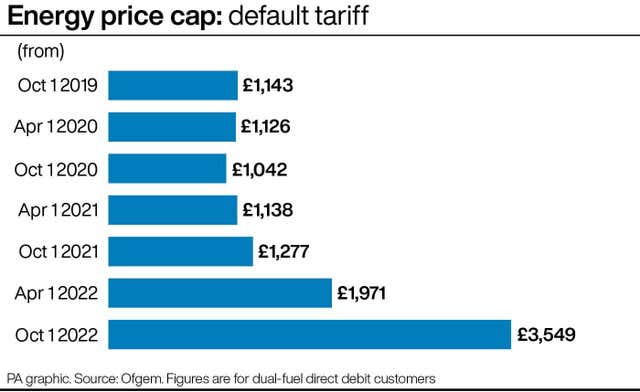
Nick Ferrari 7am - 10am
8 September 2022, 10:14

Liz Truss is expected to announce a plan to freeze bills and give the go-ahead to fracking to improve the UK’s energy security.
Liz Truss is expected to lift the ban on fracking as she sets out measures to shield households and businesses from soaring energy bills.
In her first major policy intervention as Prime Minister, she is expected to tell MPs on Thursday that domestic energy bills will be frozen at around £2,500 as part of a package to ease the cost-of-living crunch which will cost an estimated £150 billion.
The guarantee on energy costs, which is aimed at saving families and businesses from financial ruin if bills continue to rise as predicted, will be funded by increased borrowing after Ms Truss rejected calls for a windfall tax on oil and gas producers.
Downing Street has indicated Ms Truss will end the moratorium on fracking – the process of extracting shale gas by fracturing rocks with high-pressure water.
Any moves to lift the ban would be heavily criticised by opponents who have long warned that fracking can cause earthquakes, water contamination, noise and traffic pollution, while backing extraction of a fossil fuel does not sit well with the Government’s net zero objectives.
The Prime Minister is also expected to confirm pledges made during her Tory leadership campaign to scrap green levies on energy bills and back the exploitation of North Sea gas resources.
On Wednesday the pound fell to its lowest level against the dollar since 1985 amid concerns about the scale of the borrowing required.

But Levelling Up Secretary Simon Clarke told Sky News: “If we fail to act, if we don’t protect the economy against the shock of the size and scale we are talking about, then there is going to be enormous damage.
“In these circumstances I think the country will say and I think markets will respect that this is the most sensible thing to do.
“The Government is clear that a fiscally responsible approach sits at the heart of our plans but we cannot fail to respond to the magnitude of the moment.”
The precise mechanism for the controls on prices and the duration of the scheme are still to be confirmed.
Sources said the estimated £150 billion cost of the proposals was a gross, not a net, figure, while The Times suggested the plan would be reviewed early next year but could last until the next election, expected in 2024.

For domestic users in England, Scotland and Wales the current price cap on each unit of energy means average household bills should be on average no more than £1,971, rising to £3,549 in October and forecast to continue increasing when the next level is set in January.
Lifting the moratorium on fracking is unlikely to help bring down bills, given the time it will take to start production and the amount of gas it could yield in relation to the scale of the global supply problems linked to Vladimir Putin’s invasion of Ukraine and restriction on deliveries to Europe.
In March, Kwasi Kwarteng – now the Chancellor – wrote in The Mail on Sunday: “Even if we lifted the fracking moratorium tomorrow, it would take up to a decade to extract sufficient volumes – and it would come at a high cost for communities and our precious countryside.”
But Mr Clarke said: “If we want energy sufficiency we have to look at every source, including clearly new nuclear, more renewables but we also want to look at technologies like fracking.”
He insisted the Government remained committed to the “critical” goal of achieving net zero emissions by 2050 “but in the near term we need all kinds of gas as a transition fuel and that is something the Prime Minister will be saying more about”.
The decision to fund the package by increasing borrowing – at a time when interest payments on Government debt are rising – opened up a clear dividing line with Labour, which wants a freeze in energy bills funded by a levy on producers who have enjoyed bumper profits as a result of high global market prices.
The refusal to levy a windfall tax on energy companies’ excess profits has been made “purely on the basis of dogma”, shadow climate change secretary Ed Miliband said.
He told BBC Radio 4’s Today programme that it was wrong for Ms Truss to suggest a windfall tax would damage investment in the energy industry.
“This investment argument is completely bogus; that it would have a damaging effect on business,” he said.
Ahead of Thursday’s announcement, Ms Truss acknowledged families and businesses across the country are concerned about how they will “make ends meet” over the coming months.
She blamed rising global prices on Russian president Mr Putin’s “weaponisation” of gas supply in Europe.
“This has only made clearer that we must boost our long-term energy security and supply,” Ms Truss said.
“We will take action immediately to help people and businesses with bills but also take decisive action to tackle the root cause of these problems, so that we are not in this position again.”
However, she faced accusations she was dodging scrutiny over the way her plans would be presented to Parliament.
Ms Truss will open a debate on energy costs but, unlike a formal ministerial statement, this will not result in sustained questioning from MPs about the move.